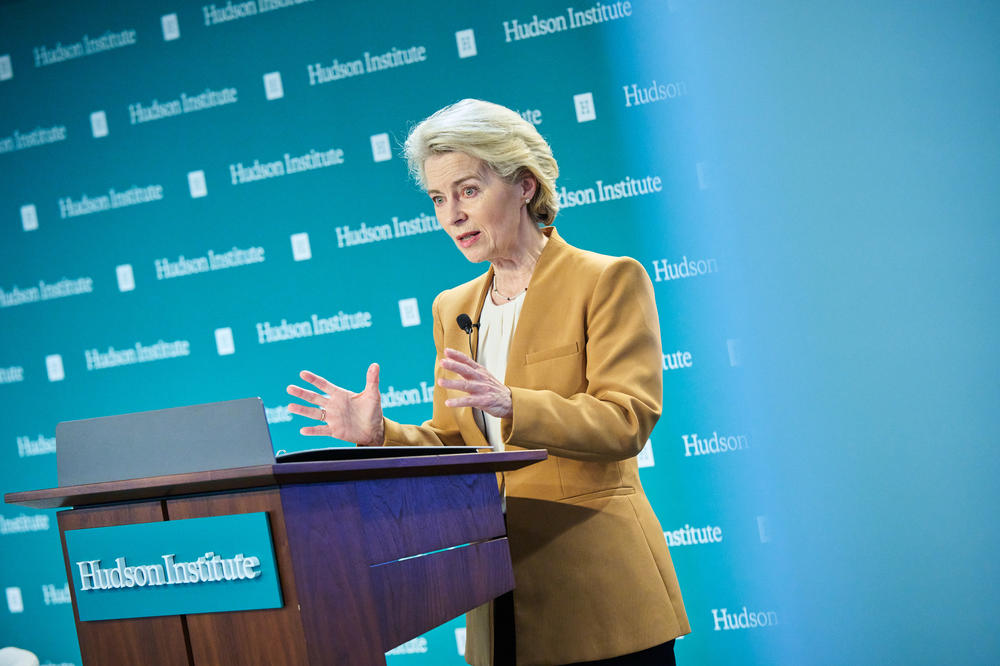Russia and Hamas? Narrating Contestations of the Liberal Script in Eastern Europe and in the Middle East
SCRIPTS Blog Post No. 69 by Alexander Libman
№ 69/2023 from Nov 09, 2023
How do politicians, academic and intellectuals in the West talk about major international crises and contestations of the liberal script? The war in Gaza offers important insights in this respect, if one compares it to the war in Ukraine. Somewhat simplified, the narrative about the Gaza war is: it is a conflict started by Hamas attacking the state of Israel, with the population of Gaza being hostages of Hamas, caught in between the terrorists and the IDF. The discussion about the war in Ukraine is entirely different: many observers talk about the Russian Federation (the nation and not the government) as the aggressor; ordinary Russians are seen by many as at least partially responsible for the war, at the very least because they did not stop Putin from starting it.
Ursula von der Leyen, President of the European Commission, at the Hudson Institute in Washington, D.C., October 2023
Image Credit: European Union / Dati Bendo
In the early 2022, a discussion emerged: should the war in Ukraine be labelled as “Putin’s war”, indicating personal responsibility of Putin for the decision to attack Ukraine, or would it be more appropriate to refer to it as “Russia’s war”? The proponents of the “Russia’s war” terminology pointed out two arguments: first, the war in Ukraine is fought by large contingents of military forces (and not by Putin alone), the soldiers follow the orders of their superiors and there are very limited anti-war protests in Russia; and second, there are deeply rooted imperialist narratives in Russia, questioning the sovereignty of Ukraine and the distinctiveness of the Ukrainian nation. Whether these arguments are convincing, is debatable: It is unlikely to expect desertion and protests in a repressive authoritarian regime that Russia became; and as for the imperialist narratives, the fact that there are Russians who share and embrace them does not mean that most people in Russia identify with them – public opinion surveys and qualitative studies so far produce a picture of an apathic and depoliticized society rather than an imperialist-aggressive one.
What would happen, if one applied both arguments in favor of the label “Russia’s war” to the war in Gaza? There are hardly any doubts that there are anti-Israel (and, in fact, antisemitic) narratives not only in the Gaza strip and the West Bank but in most Arab (and many Western) countries. And there is no evidence that Palestinians in Gaza or elsewhere protest against Hamas, demand the release of Israeli hostages or condemn Hamas actions. Of course, Hamas does rule Gaza with an iron fist, but so does Putin in Russia - and, in spite of that, there have been anti-war protests in Russia and protests of Russians abroad. Even more: while there are plenty of reports of cases of Palestinians (in different countries) openly celebrating the Hamas attack, there were no public celebrations by Russians of the atrocities committed by the Russian army in Bucha or elsewhere in Ukraine. It is very likely that there are parts of the population of Gaza (and of Palestine), who support Hamas, but it does not bring the commentators to talking about responsibility of the Gaza population for the war; for Russia, however, the existence of the parts of the population supporting the aggression is for many the reason to talk about the responsibility of all Russians for the war.
The list of differences can be continued. Regardless of how truthful such arguments are - nobody is suggesting that the Palestinian (or Arab) culture is in any way responsible for the war (although there are those making this statement about Russian culture). The trust towards statements coming from Hamas or agencies it controls about the plight of the civil population (e.g., in case of the bombing close to the Al-Ahli Arab Hospital on 17 October, which was falsely attributed to Israel) in the public media seems to be higher than the trust towards statements coming from Russian authorities – although, while the latter systematically engage in spreading misinformation, so does Hamas. Even if Western observers explicitly compare these two wars, they often replicate the mismatch in two narratives: Ursula von der Leyen, while talking about two crises, does not hesitate to say that “Russia [AL: not Putin’s regime] and Hamas [AL: not Palestine or Gaza] are alike”.[1]
One is inclined to claim that discussions about Gaza and Ukraine happen in the shadow of prior beliefs and narratives observers fit their perception of the wars into. The war in Gaza seems to be perceived by many through the lense of anti-Israeli narratives with all their persistent elements: alleged “colonialism”, “apartheid state” and representation of terrorist organizations like Hamas as freedom fighters. These narratives have existed among the European left-wing intellectuals for decades. The war in Ukraine revives essentialist narratives of Russia as an inherently aggressive and autocratic country and culture, which existed well before the Cold War. The perception of the conflict through the “David and Goliath” lens (where sympathies often go to the supposedly weaker side) could play a role. In any case, this asymmetry is concerning: it indicates serious problems with the integrity of our discourse, which certainly require careful reflection.
[1] https://ec.europa.eu/commission/presscorner/detail/en/speech_23_5162
Prof. Dr. Alexander Libman is a Principal Investigator at SCRIPTS and Professor of Russian and East European Politics at the Freie Universität Berlin.

